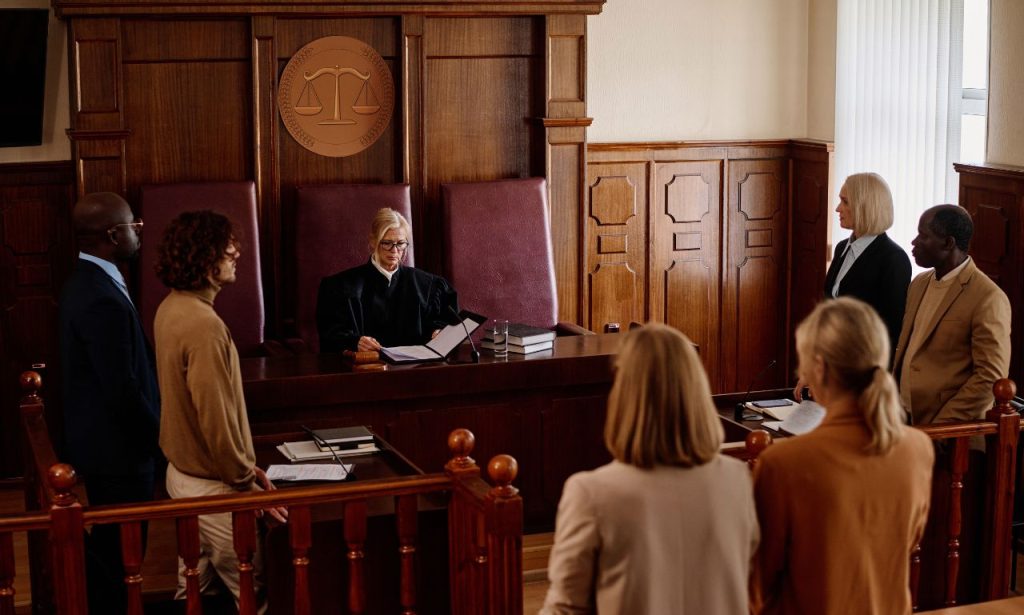Family matters can be emotional and complex, leaving you feeling vulnerable and overwhelmed. That’s where family law attorneys step in—they guide, support, and help you navigate the labyrinth of legal proceedings.
Role of Family Law Attorneys
Family law attorneys are your advocates during some of life’s most difficult times. They handle issues relating to family relationships—like divorce, child custody, spousal support, adoption, and more. With their extensive experience, family law lawyers guide you through legal processes, ensuring your rights are protected. But their role goes far beyond paperwork and court appearances; they provide emotional support and practical advice to help you make informed decisions.
Whether it’s defending parental rights, negotiating prenuptial agreements, or seeking an amicable solution to a family dispute, a dedicated family law attorney can make all the difference. Their expertise is essential, especially in cases where legal issues are intertwined with strong emotions and personal stakes.
Key Areas of Family Law
Divorce and Dissolution of Marriage

Divorce isn’t just about breaking the bonds of marriage—it’s a challenging process involving the division of assets, child custody arrangements, and spousal support. A divorce lawyer will help you navigate the entire process, providing realistic expectations and guiding you towards either a contested or uncontested divorce.
Whether you’re dealing with community property division, spousal maintenance, or the calculation of child support, family law lawyers are instrumental in making sure your interests are represented. They aim to minimize conflict, negotiate settlements, and provide you with a clear understanding of each aspect of the divorce.
Child Custody and Visitation Rights
Few things are more important to parents than the custody of their children. Family law attorneys understand this and work diligently to reach child custody agreements that serve the best interests of the child. This could mean negotiating shared parenting time, defining major decisions, and ensuring your parental rights are upheld.
Child custody disputes can be complex, involving factors like the age of children, child visitation schedules, and even issues like child abuse or neglect proceedings. Experienced family law attorneys aim to provide a stable environment for your children while protecting your interests as a parent.
Spousal Support and Alimony
Financial matters are often a significant concern in a divorce. Spousal support—also known as alimony—can be a lifeline for one partner following the dissolution of marriage. Family law lawyers evaluate financial situations, understand considerations for spousal support, and ensure that any spousal maintenance arrangements are fair and reasonable.
Determining alimony can be contentious, which is why having a competent representation matters. An effective divorce attorney will help ensure that the calculation of spousal support aligns with legal guidelines and both parties’ circumstances.
Prenuptial and Post-nuptial Agreements
Prenuptial and post-nuptial agreements aren’t just for the rich and famous. They’re tools to protect your assets, reduce future conflict, and provide peace of mind. Whether you’re looking to protect separate property, real estate, or establish financial boundaries, a family law attorney can draft agreements that clearly outline each party’s rights and obligations.
Experienced family law attorneys can also assist in revisiting and modifying agreements to reflect significant changes, such as the birth of a child or a change in employment status.
Domestic Violence and Restraining Orders
Family law attorneys also play a crucial role in cases involving domestic violence. Domestic violence isn’t just physical—it can involve emotional, financial, or psychological abuse. Family law lawyers can help victims get restraining orders and provide representation during civil proceedings.
Their assistance to victims extends beyond the legal process. They often act as advocates, providing accessible advice and ensuring that victims receive the protection they need. If you or someone you know is dealing with a domestic violence situation, seeking legal assistance from a dedicated family attorney is critical for safety and justice.
Adoption and Guardianship
Adopting a child is a rewarding experience, but the adoption process can be full of legal complexities. Family law attorneys help prospective parents navigate the legal requirements, including step-parent adoptions, international adoptions, and the entire admissions process.
Guardianship cases, too, require a thorough understanding of family law. Whether you are seeking guardianship of a minor child or assisting a loved one who can no longer manage their own affairs, a family law lawyer can help make sure the necessary legal rights and duties are in place.
The Divorce Process
Initial Consultation and Case Assessment
Your journey with a family law attorney begins with an initial consultation. During this phase, the attorney assesses your situation, provides informed decisions, and explains the potential outcomes. This is the time to establish whether this particular attorney is the right fit for your case.
Filing for Divorce
The filing process includes preparing and submitting the required legal documents to initiate divorce proceedings. A divorce lawyer helps you ensure every detail is accurate and filed correctly, reducing delays and protecting your rights.
Negotiating Settlements
Divorce doesn’t always have to be a war. Many clients in family law cases choose to negotiate settlements to resolve disputes amicably. Family law attorneys help guide these discussions, whether they involve property division, spousal support, or child custody agreements. Their role here is crucial to finding solutions that work for everyone involved.
Court Hearings and Trials

If negotiation fails, the matter may proceed to a court trial. Family law lawyers represent you at each stage of the trial, presenting evidence, examining witnesses, and advocating for your interests. Trials can be challenging, but with a skilled family law attorney by your side, you can rest assured your rights are protected.
Importance of Hiring a Family Law Attorney
Protecting Legal Rights and Interests
A family law attorney ensures that your legal rights are protected at every step of the way. Whether you’re facing a custody battle, domestic violence, or property disputes, their aggressive representation ensures your interests are not compromised.
Family law is full of legal nuances, rules, and regulations. Attempting to navigate these without legal representation is overwhelming. A family law lawyer understands the complexities involved and will help simplify the entire process for you.
Emotional Support and Guidance
Family law issues are often emotionally draining. An experienced family attorney offers more than just legal advice—they offer support, understanding, and a steady hand during uncertain times. They keep you focused on the big picture, providing emotional guidance and ensuring you remain calm during this stressful time.
Factors to Consider When Choosing an Attorney
Experience and Expertise
Experience in family law matters. Look for attorneys with extensive experience in handling cases similar to yours. Whether it’s complex family law disputes or simple, uncontested divorces, substantial experience can make a significant difference.
Reputation and Client Reviews
The reputation of a family law firm is often reflected in client reviews and accolades. Look for attorneys with numerous awards, bar associations memberships, and positive client testimonials. A strong track record can provide peace of mind that you’re in capable hands.
Communication Style and Availability
Clear communication is key when dealing with legal matters. You want an attorney who takes your client phone calls, keeps you informed throughout the process, and is available when you need them. Good family law lawyers are empathetic and approachable—they understand the challenging time you are facing.
Costs Involved in Family Law Representation
Understanding Legal Fees
Hiring a family law attorney comes with costs, but understanding these fees will help you make an informed choice. Most family law practices work on an hourly rate basis, although some offer contingency fees or fixed pricing for specific services.
Payment Structures and Retainers

Many attorneys require a retainer upfront, which acts as a deposit against future services. Ensure you understand the payment structure before signing an agreement—ask about hourly rates, flat fees, and any potential additional costs.
Potential Additional Costs
There can be additional costs beyond the attorney’s fees, including court fees, expert witnesses, and administrative charges. Discuss these potential expenses with your family law lawyer to avoid surprises later.
Conclusion
Don’t let your family law matter overwhelm you. Whether you’re dealing with divorce, child custody, or a prenuptial agreement, a skilled family law attorney is your best ally. Reach out to a qualified family law lawyer today—they can guide you through even the most difficult times and help bring clarity to your situation.
ALSO READ: What Happens If a Spouse Won’t Sign Divorce Papers?
FAQs
The length of a divorce process varies depending on the complexity of the case and whether both parties are willing to settle. It can take anywhere from a few months to over a year.
A contested divorce involves disagreements between the parties that require court intervention, while an uncontested divorce means both parties agree on all terms, leading to a smoother and faster process.
Bring all relevant documents, such as marriage certificates, financial statements, and any existing agreements. The more information you provide, the better your attorney can assess your case.
Yes, child custody arrangements can be modified if there’s a significant change in circumstances, such as relocation or changes in the child’s needs.




